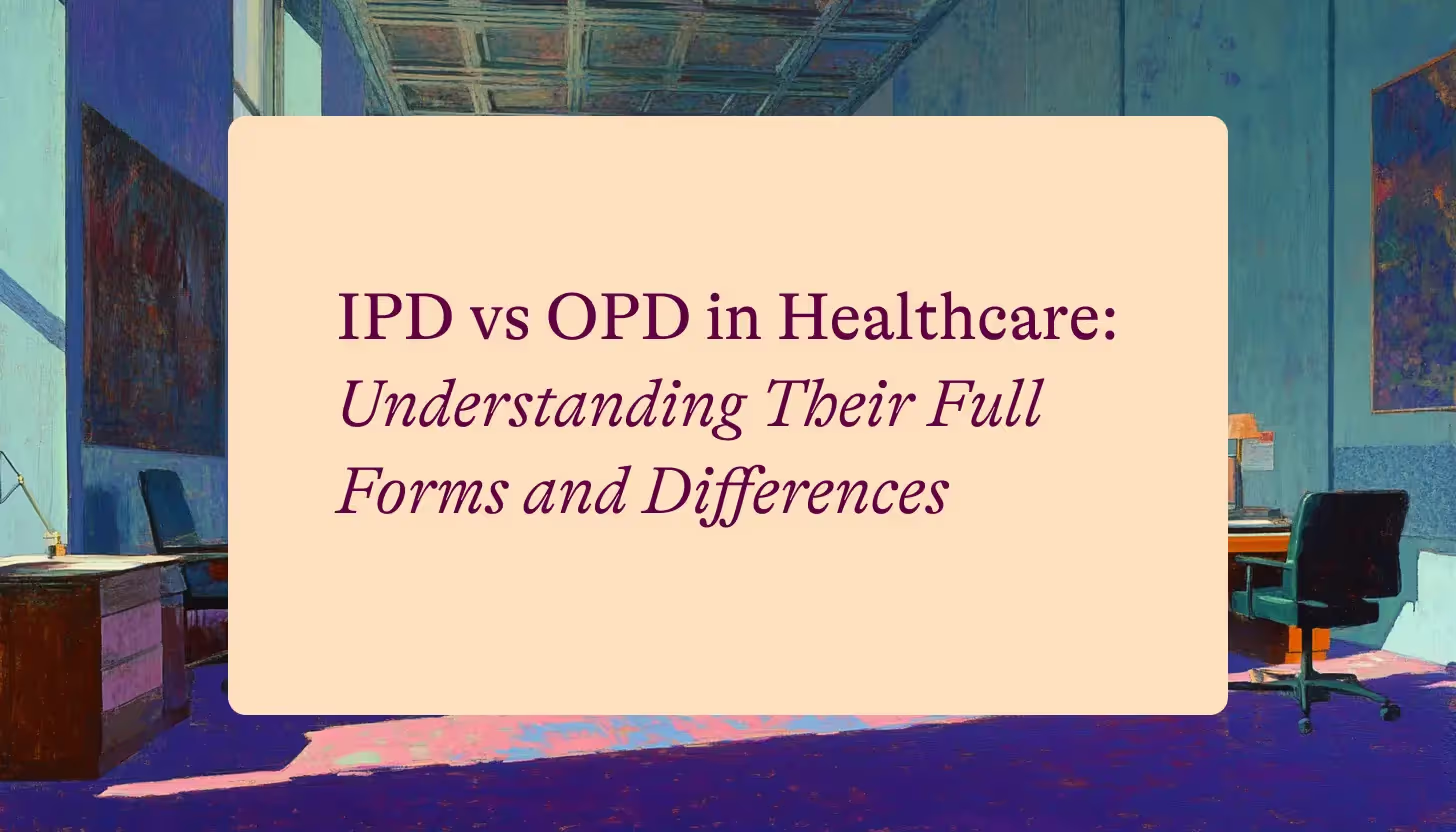Medical costs have significantly increased during the last few years due to a spike in medical inflation. With this rise, having group health insurance is now necessary since it enables policyholders to cover high medical costs and, most importantly, receive quality care.
One of the many factors you must consider when purchasing a health plan is knowing the list of network hospitals. Health insurance companies have partnered with specific hospitals known as network hospitals to make it simpler for policyholders to receive treatment.
This blog aims to explain what network and non-network hospitals mean and how network hospitals differ from non-network hospitals on several criteria.
Get a quote: Group Personal Accident Insurance & Group Term Life Insurance
What do Network Hospitals mean in Health Insurance?
Network hospitals are hospitals or medical facilities that have partnered with a specific health insurance company. You can enjoy certain benefits when you have health insurance and visit a network hospital. These benefits may include receiving cashless treatment, meaning you don't have to pay upfront for medical services covered by your insurance.
So, network hospitals are those healthcare providers that work closely with your insurance company, making it easier and more cost-effective for you to receive the medical care you need. Developing a comprehensive medical practice business plan can further streamline operations and ensure efficient delivery of services within these network hospitals.
For Example: You have health insurance from ABC Insurance Company. They have a network of hospitals that they have partnered with, such as XYZ Hospital.
You can choose to go to XYZ Hospital when you need medical treatment. As it is a network hospital, you can benefit from cashless treatment. This means that instead of paying for the medical services out of your pocket, the insurance company will directly settle the bills with XYZ Hospital as long as your policy covers the treatment.
What do Non-Network Hospitals mean in Health Insurance?
Non-network hospitals, in simple terms, are healthcare facilities that have not entered into a partnership or agreement with a specific health insurance company. Unlike network hospitals, non-network hospitals do not have a direct relationship with the insurance company.
When you have health insurance and choose to receive medical treatment at a non-network hospital, You may need to pay for the treatment upfront and then file a claim with your insurance company to seek reimbursement for the eligible expenses per your policy terms.
For Example: You have health insurance from ABC Insurance Company. While ABC Insurance Company has a list of network hospitals, you choose to receive medical treatment at a hospital, not part of its network, such as XYZ Hospital. In this case, XYZ Hospital would be considered a non-network hospital.
If you visit XYZ Hospital for medical treatment, the process and coverage may differ compared to a network hospital. You may need to pay for the treatment upfront and then submit a claim to ABC Insurance Company for reimbursement.
Top 4 Differences Between Network & Non-network Hospitals
Cashless Treatment Facility
One of the most significant differences between a network hospital and a non-network hospital is the Cashless Treatment Facility. It means that you won't have to pay anything upfront when you receive hospital care at a network hospital. You have to give your insurance provider a heads-up about your hospitalisation and give the third-party administrator (TPA) the required documents. Your insurer pays for any hospitalisation costs in a network hospital.
In case you go to a non-network hospital, you must pay upfront for services received at a hospital. After being released from the hospital, you must give your insurer the relevant documents and reports. After reviewing the documents, the insurer reimburses you for the hospitalisation costs you spent based on your policy.
Waiting Time
In a network hospital, the waiting period is almost nonexistent. The medical expenses will be paid immediately, and without delay after the TPA at a network hospital has verified all the required documents. But at a non-network hospital, the policyholder can only request reimbursement after presenting the associated medical bills. The waiting period for claim settlement is typically longer because payment only occurs once all the bills have been verified.
Documents and Formalities
In a network hospital, documentation and formalities are a simple process. Contact your health insurance, show the TPA (third-party administrator) your health card, and you're done. You do not need to go through the laborious procedure of keeping all documentation, such as doctor's reports, bills, etc., to submit an insurance claim.
In a non-network hospital, things are different. To avoid having your claim rejected or the amount of your reimbursement reduced, you must properly maintain all your supporting documents.
Cash Arrangement
You don't have to worry about the money when receiving treatment in a network hospital. Everything is cashless, as said. However, you might have to pay a deposit upfront for admission if you receive care at a non-network hospital. Additionally, you must make consistent payments throughout treatment, which can be very difficult.
Organising and paying cash in small amounts can be difficult at trying times like the COVID-19 pandemic. In these circumstances, you might be taking out loans with exorbitant interest rates, which would hurt your finances even more. The insurer pays the bill directly at a network hospital, so you don’t have to worry about your finances.
When Should You Consider Going for a Treatment in a Non-network Hospital?
As we have seen, visiting a network hospital is far more practical than a non-network hospital when seeking medical care. However, sometimes you have no choice but to be admitted to a non-network hospital. Mentioned below are some of those occurrences.
- Specialized Treatment
- Emergency Situations
- Unavailability of Network Hospitals
It's important to note that receiving treatment at a non-network hospital may have financial implications. You may need to pay upfront for the medical services and then follow the reimbursement process outlined in your policy.
Frequently Asked Questions
1. What is the difference between agreed hospitals and network hospitals?
Agreed hospitals are the same as Network hospitals. You will enjoy the same benefits as you get in the network hospital. The rewards, discounts and cashless treatment.
2. What is the role of a TPA?
The role of a TPA would usually include Member enrollment and issuance of health cards, Pre-authorization for cashless treatment, and Reimbursement Claim Processing.
3. Are Network Hospitals different for different insurance companies?
Yes, they depend on the agreement between the hospitals and insurance companies.
4. Which insurance company has the highest network hospitals?
HDFC ERGO has the highest number of network hospitals.
5. How do policyholders find out which hospitals are in their insurer's network, especially in emergency situations?
Policyholders can check their insurance provider's website or app for a list of network hospitals. In emergencies, calling the insurer's customer support can provide immediate information. Insurance companies ensure easy access to this data, so policyholders can quickly find a network hospital nearby.
6. Are there any exceptions where a non-network hospital visit can be treated as in-network by the insurance provider?
Yes, in certain emergency situations, if network hospitals are not accessible, insurance companies might treat a non-network hospital visit as in-network. Policyholders should inform their insurer as soon as possible and provide necessary documentation to facilitate this exception.
7. How does the quality of care compare between network and non-network hospitals, according to studies or patient feedback?
Studies and patient feedback suggest that the quality of care can vary, but it's not necessarily dependent on the hospital's network status. Quality often depends on the hospital's infrastructure, staff qualifications, and patient care standards. Insurers generally partner with hospitals that meet specific quality criteria, ensuring reliable care for policyholders.
.avif)










.avif)














